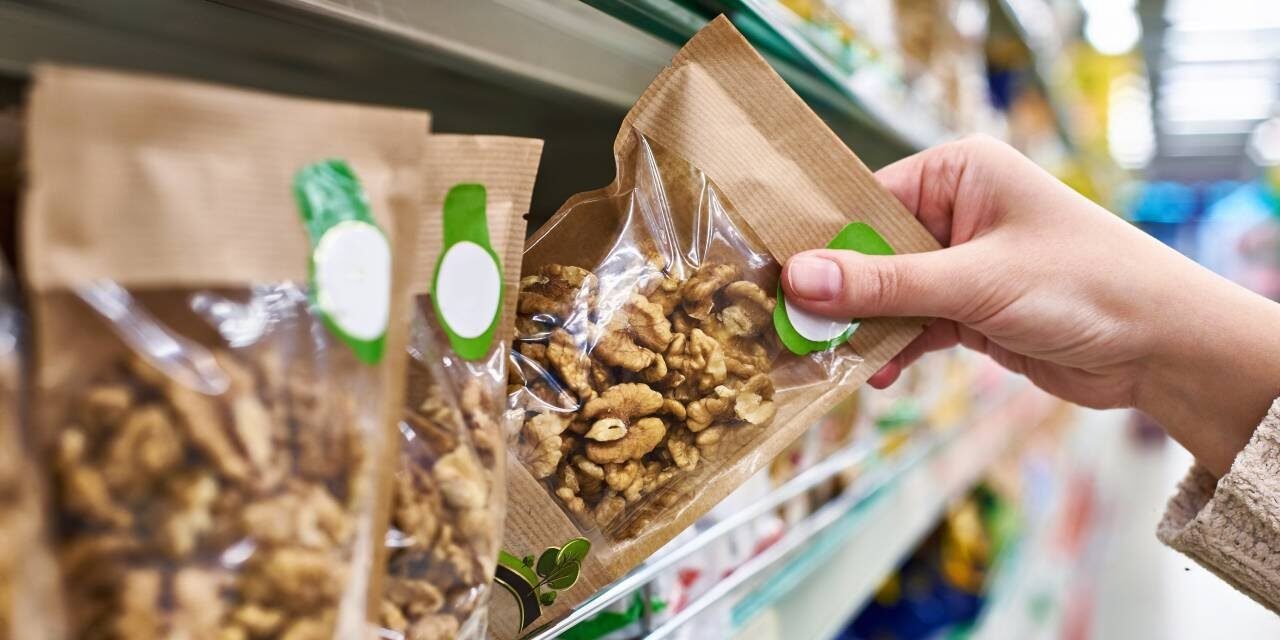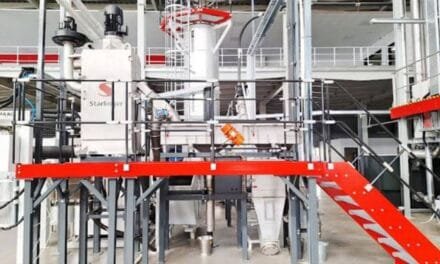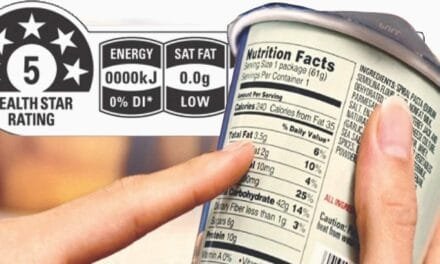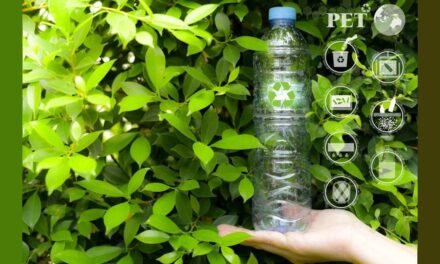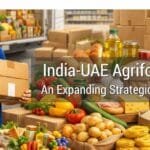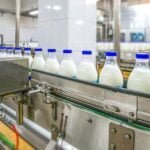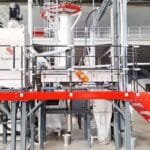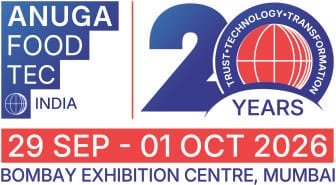The food industry is entering a new era of responsibility. From sustainable food manufacturing, biodegradable packaging, to ethical sourcing and low-carbon supply chains, sustainability has become a key growth driver. Sustainability is now a core growth driver, shaping not only how food is produced, packaged, and consumed, but also how companies collaborate, source materials, and contribute to planetary health.
At PFI Online, we explore these cutting-edge innovations, regulatory frameworks, and business practices that are reshaping the future of food. From AI-powered supply chain sensors to edible packaging and new reporting standards, the industry is mobilizing to deliver real change, benefiting people, communities, and the planet alike.
Explore these cutting-edge innovations
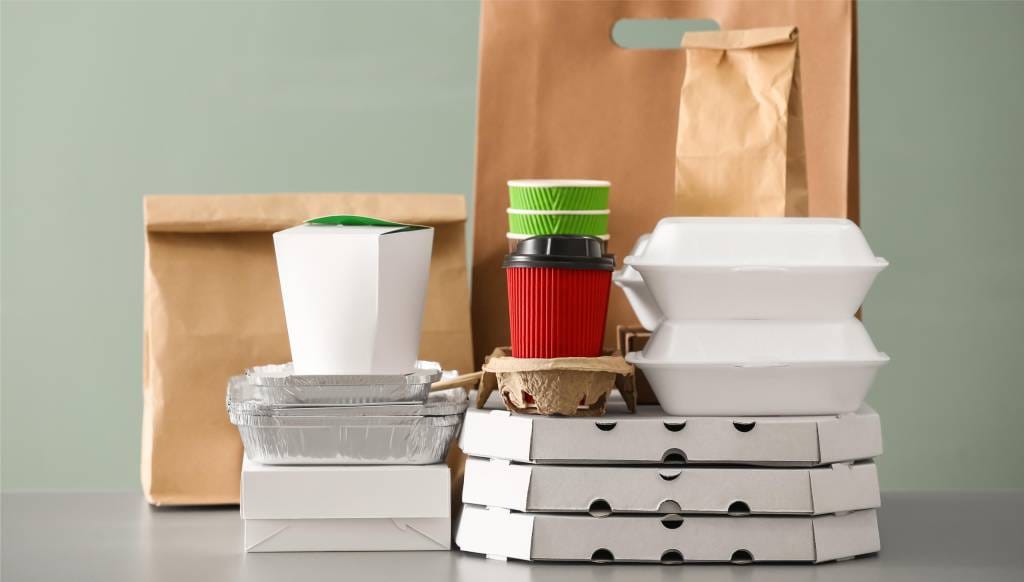
🔬 Biodegradable & Eco-Friendly Packaging
Bacteria-Based Bioplastics: The Future of Biodegradable Food Packaging
Japanese scientists are harnessing bacteria to create bioplastics that decompose naturally, eliminating microplastics and offering a sustainable replacement for petroleum-based packaging.
The material, called pyridinedicarboxylic acid (PDCA), is not a complete plastic replacement but can substitute for terephthalic acid, a key component in PET plastics widely used in bottles, containers, and textiles. Unlike conventional counterparts, PDCA is nitrogen-based, biodegradable, and offers superior physical properties.
How Ice Cream Brands Are Adopting Sustainable Packaging in 2025
From compostable tubs to recyclable lids, major ice cream brands are embracing green packaging that balances sustainability with consumer convenience.
As awareness of environmental challenges grows, large ice cream brands are increasingly under pressure to align their production processes with sustainability and environmental challenges. Consequently, large ice cream brands find themselves reevaluating their production processes and techniques to reduce their environmental footprint.
🧃 New: Plant-Based Packaging: Turning Agricultural Waste into Eco Materials
Innovators are transforming rice husks, sugarcane, and corn fiber into biodegradable packaging solutions that reduce both plastic waste and agricultural byproducts.
The demand for environment-friendly packaging materials has considerably increased because of environmental concerns regarding the use of synthetic petroleum-based plastics.
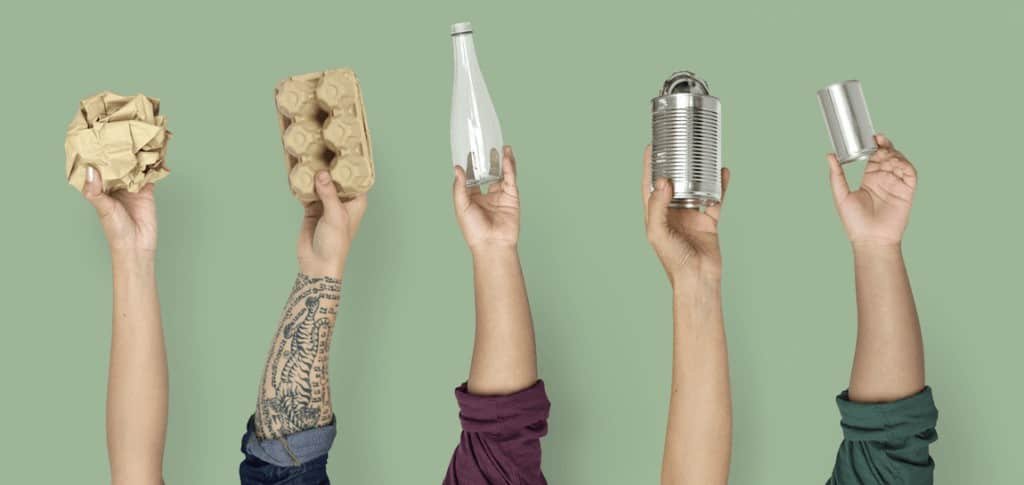
🏭 Sustainable Manufacturing & Supply Chains
How Sustainability is Revolutionizing the Food Industry
A look at how global manufacturers are cutting emissions through lifecycle assessments, renewable energy, and circular production systems.
Manufacturers are making all kinds of claims about their efforts to reduce their carbon footprint, resorting to food sustainability initiatives. In international trade, buyers insist on this information before placing orders. These initiatives are changing the processing and formulations of food products, which requires life cycle thinking consisting of carbon footprint (CF), ecological footprint (EF), and life cycle assessment (LCA).
Rising Consumer Shift: Food Sustainability Takes Center Stage
Consumers now demand transparency and responsibility, driving brands toward ethical sourcing, traceability, and eco-labeled packaging.
The trend is evident. Consumers are turning towards vegetarian alternatives to non-veg food and food products. It started about a decade ago, slowly but surely. During the last couple of years, the momentum has picked up due to the relentless efforts of the marketers supported by the food ingredients manufacturers, including natural and nature-identical flavours, and natural additives such as emulsifiers and texturisers.
⚙️ New: AI and IoT in Sustainable Food Supply Chains
Discover how smart sensors, predictive analytics, and blockchain are enabling traceable, waste-free food systems.
For food to be totally safe food traceability is of prime importance and this is where smart sensors, predictive analytics, and blockchain technology can be put to use. It is all the more necessary since food by its very nature is perishable and when foodborne diseases threaten public health, the first step is to track down the source of contamination through blockchain technology.
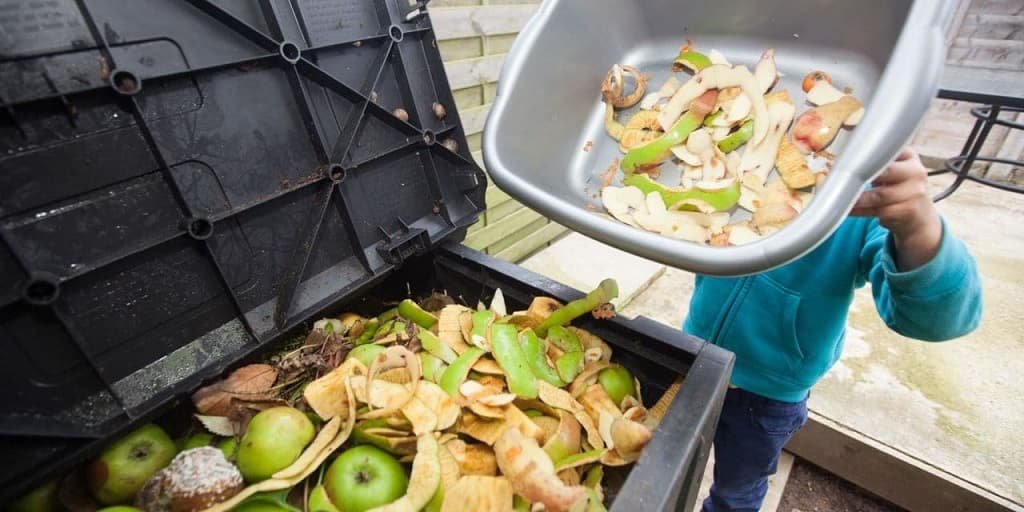
🍴 Food Waste Reduction & Edible Innovations
Edible Films and Coatings Enhancing Food Quality and Shelf Life
Explore biodegradable edible coatings that extend shelf life and reduce spoilage, merging food tech with sustainable materials.
Edible Films and Coatings are primary packaging made from edible components. These innovations offer sustainable solutions for packaging and food preservation, providing functionalities such as moisture and gas barriers, mechanical strength, and flavour preservation. With increasing demand driven by the food and pharmaceutical sectors, these materials are reshaping how food products are processed and presented.
Green Plastics: The Game Changer in Food Packaging
Green plastics or bioplastics are biodegradable plastics usually made from plants – a renewable resource. Real-world case studies show how companies are integrating green polymers and recyclable materials into packaging design.
New biodegradable polymer blends have been developed to enhance the degradation of the final product. The use of biopolymers or bioplastics is based on renewable resources and contributes to material cycling that is analogous to the natural biogeochemical cycles in nature.
To understand more about innovative approaches in this area, you can also explore the journey of green plastics and sustainable materials.
🥫 New: Reusable Packaging Models: Closing the Loop in Food Delivery
Food delivery and quick-service brands are turning to containers, subscription-based packaging, and deposit systems to reduce single-use waste.
Recently, the Nagaland Pollution Control Board (NPCB), in partnership with Nagaland Coffee, has launched the ‘Tumbler Takeover’ campaign aimed at reducing waste through the use of reusable tumblers.
As a part of the campaign, NPC has handed over reusable tumblers to Nagaland Coffee whereby the café will offer the tumblers to their regular customers who pledge to reuse the tumblers every time they come back to the café for a takeaway order.
The initiative seeks to encourage the replacement of disposable takeaway cups.

🧩 Policy, Regulation & Market Trends
India’s Food Packaging Market: Trends, Growth & Sustainability
India’s packaging industry is shifting toward eco-certifications, policy compliance, and market-led sustainability. However, there is an urgent need for standard packaging solutions to ensure quality, and meet food safety standards.
Traditional plastic and foil packaging contribute significantly to non-biodegradable waste. By shifting toward eco-friendly, biodegradable, and reusable packaging solutions, especially glass and paper-based materials, the industry can significantly reduce its environmental impact while preserving food quality.
PET Recyclers Urge FSSAI to Expedite Approvals for Food Packaging Material
Industry stakeholders are calling for faster regulatory frameworks that support recycled PET use in safe, compliant packaging.
PET Recyclers have expressed grave concern over the continued delay in implementing the mandatory recycled content requirement under India’s Plastic Waste Management (PWM) Rules.
The industry has requested that the Food Safety and Standards Authority of India (FSSAI) immediately enforce the recycled content mandate as per the PWM Rules without further deferral and ensure time-bound brand compliance, with regular monitoring and reporting mechanisms.
🧾 New: Global Food Packaging Regulations: A Roadmap to Sustainable Compliance
A global comparison of EU, US, and Asia-Pacific standards guiding the shift toward sustainable packaging and responsible labeling.
Members of the European Parliament (MEPs) want to ban the sale of very lightweight plastic carrier bags (below 15 microns), unless required for hygiene reasons or provided as primary packaging for loose food to help prevent food wastage. They also propose to heavily restrict the use of certain single use packaging formats, such as hotel miniature packaging for toiletry products and shrink-wrap for suitcases in airports
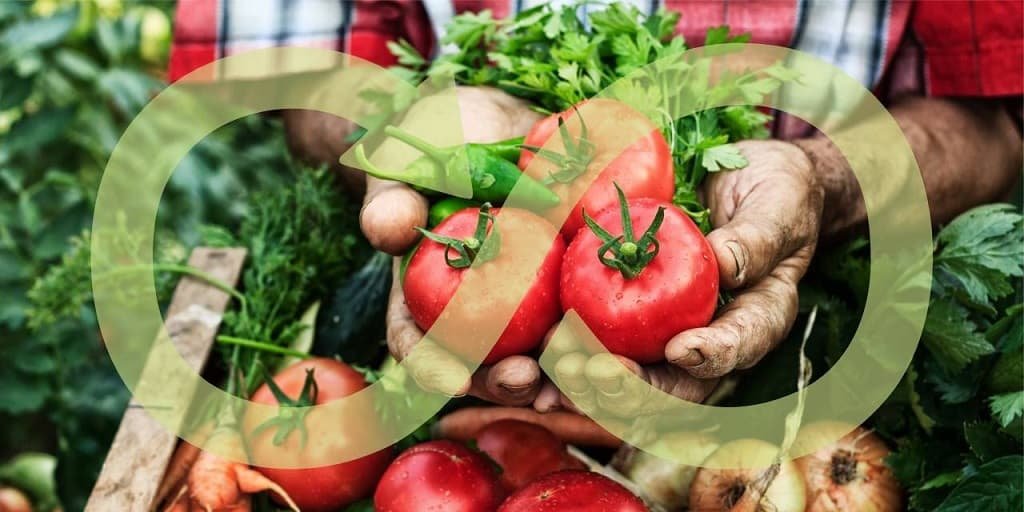
🏆 Ethical Food & Beverage Leadership
World’s Most Ethical Food & Beverage Companies: Sustainable Food Brands
Highlighting global leaders in ESG initiatives, fair trade, and responsible manufacturing, setting benchmarks for sustainable food brands.
At the heart of the evaluation is Ethisphere’s proprietary rating system, Ethics Quotient® (EQ), a standardized framework with more than 250 data points assessing everything from Environmental, Social and Governance (ESG), ethics, culture and compliance.
🥫 New: Non-toxic reusable wrapper created by scientists
Indian scientists have developed a composite paper made of carbon (graphene oxide) loaded with preservatives that can be used as wrappers to help extend the shelf life of fruits. Unlike the present preservative dipping technology, where the preservatives are absorbed by the fruit, causing chronic toxicity to the consumers, here, the preservatives are released from the wrapper only when needed.
The wrapper can be reused, which is not possible with the present technology. It would not lead to the adsorption of preservatives in the fruit.
Related Topics
- Recycled Food Packaging Materials
- Eco-Friendly Packaging Innovations
- Food Waste Reduction Technology
- Lifecycle Assessment in Food Manufacturing
- Automation and AI in Food Manufacturing
📘 Cornerstone Takeaway
Sustainability in food and packaging isn’t a trend—it’s a transformation. Explore how innovations in materials, manufacturing, and policy are creating a more circular, responsible, and resilient global food ecosystem.
❓ Sustainable Food & Packaging FAQs
Sustainable food packaging uses eco-friendly materials and energy-efficient manufacturing to reduce environmental impact. It includes biodegradable, recyclable, compostable, and reusable materials designed to minimize waste and carbon emissions.
The food sector generates significant packaging waste. Sustainable solutions help reduce landfill waste, cut emissions, and meet consumer and regulatory expectations for responsible production.
Common materials include: • PLA (polylactic acid) derived from corn starch • Bagasse (sugarcane fiber) • Recycled PET and paperboard • Mushroom-based and seaweed-based materials These options offer biodegradability or recyclability without compromising safety or durability.
Brands can: • Use recycled or renewable materials • Reduce packaging layers to minimize material use • Adopt returnable or refillable models • Ensure compliance with eco-labels and standards like ISO 14040 or FSC certification.
No. Biodegradable packaging breaks down naturally over time through microorganisms. Compostable packaging, however, decomposes under specific composting conditions and leaves no toxic residue, making it ideal for food waste management systems.
Modern consumers prioritize eco-friendly products, pushing companies to redesign packaging, disclose sustainability metrics, and adopt transparent supply chains. Their purchasing decisions directly shape industry innovation.
Expect rapid growth in: • Smart packaging with traceability sensors • Bio-based materials from waste streams • Circular packaging systems in e-commerce and food delivery • Stronger global regulations encouraging material transparency and waste reduction.
Have a news or topic to share with industry? Write to us editorial@pfionline.com

